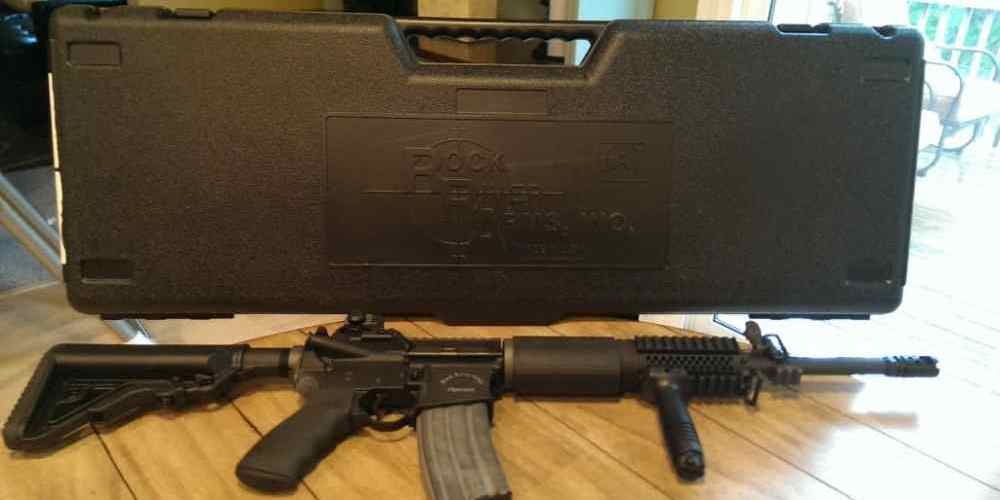“Empowerment through advocacy, defending our rights one voice at a time.”
The History of the Second Amendment and Its Impact on Political Activism
The Second Amendment to the United States Constitution has been a topic of much debate and controversy since its inception. The amendment, which states that “A well regulated Militia, being necessary to the security of a free State, the right of the people to keep and bear Arms, shall not be infringed,” has been interpreted in various ways over the years. One of the most significant impacts of the Second Amendment is its role in shaping political activism in the United States.
The history of the Second Amendment dates back to the founding of the United States. The amendment was added to the Constitution in 1791 as part of the Bill of Rights, which was designed to protect individual liberties from government infringement. At the time, the amendment was seen as a way to ensure that citizens could defend themselves against potential threats, both foreign and domestic.
Over the years, the Second Amendment has been the subject of much debate and interpretation. Some argue that the amendment guarantees an individual right to bear arms, while others believe that it only protects the right of states to maintain militias. This debate has led to a wide range of laws and regulations regarding gun ownership and use in the United States.
Despite the controversy surrounding the Second Amendment, it has played a significant role in shaping political activism in the United States. The right to bear arms has been used by various groups and individuals to advocate for their beliefs and causes. From gun rights activists to advocates for stricter gun control laws, the Second Amendment has been a rallying cry for those seeking to make their voices heard on the issue of gun rights.
One of the ways in which the Second Amendment has impacted political activism is through the formation of advocacy groups and organizations. Groups like the National Rifle Association (NRA) have used the Second Amendment as a cornerstone of their advocacy efforts, working to protect and expand gun rights in the United States. These groups have been instrumental in shaping public opinion and influencing policy on gun rights issues.
In addition to advocacy groups, the Second Amendment has also inspired individuals to take action on the issue of gun rights. From grassroots activists to high-profile celebrities, many people have used their platform to speak out on the importance of the Second Amendment and the right to bear arms. This activism has taken many forms, from organizing rallies and protests to lobbying lawmakers and running for political office.
The Second Amendment has also played a role in shaping public opinion on gun rights issues. Polls consistently show that a majority of Americans support the right to bear arms, with many viewing it as a fundamental right protected by the Constitution. This support has been a driving force behind efforts to protect and expand gun rights in the United States.
In conclusion, the Second Amendment has had a significant impact on political activism in the United States. From advocacy groups to individual activists, the right to bear arms has inspired many to take action on the issue of gun rights. As the debate over the Second Amendment continues, it is clear that this constitutional right will continue to shape political activism for years to come.

How Gun Control Laws Affect Second Amendment Rights and Political Activism
The Second Amendment of the United States Constitution guarantees the right of the people to keep and bear arms. This fundamental right has been a topic of much debate and controversy, especially in recent years as the issue of gun control has become increasingly prominent in the national conversation. Gun control laws have a direct impact on Second Amendment rights, and many Americans are passionate about protecting their right to own firearms.
One way that individuals can make their voices heard on this issue is through political activism. Political activism involves taking action to influence government policies and decisions, and it can be a powerful tool for advocating for Second Amendment rights. There are several ways that individuals can engage in political activism to support the Second Amendment.
One of the most effective ways to get involved in political activism is to contact your elected representatives. This can be done through phone calls, emails, letters, or in-person meetings. By expressing your views on gun control laws and the Second Amendment to your representatives, you can help shape their positions on these important issues. It is important to be respectful and articulate when communicating with your representatives, as this will increase the likelihood that they will take your concerns seriously.
Another way to engage in political activism is to participate in rallies, protests, and other public demonstrations. These events provide an opportunity to show support for the Second Amendment and to connect with like-minded individuals who share your views. By participating in these events, you can help raise awareness about the importance of protecting Second Amendment rights and make your voice heard on a larger scale.
Social media is another powerful tool for political activism. By sharing information, articles, and opinions about gun control laws and the Second Amendment on social media platforms, you can reach a wide audience and spark meaningful conversations about these important issues. Social media can also be used to connect with other activists, organize events, and mobilize support for the Second Amendment.
In addition to these more traditional forms of political activism, individuals can also support organizations that advocate for Second Amendment rights. There are many organizations, such as the National Rifle Association (NRA) and Gun Owners of America, that work to protect and defend the Second Amendment. By joining these organizations, donating money, or volunteering your time, you can help support their efforts to preserve Second Amendment rights.
Overall, political activism is a powerful tool for advocating for Second Amendment rights and influencing government policies on gun control. By contacting your elected representatives, participating in rallies and protests, using social media, and supporting advocacy organizations, you can make your voice heard on this important issue. It is essential for individuals who are passionate about protecting the Second Amendment to engage in political activism and work together to ensure that this fundamental right is preserved for future generations.
The Role of Lobbying and Advocacy Groups in Second Amendment Advocacy
The Second Amendment of the United States Constitution guarantees the right of the people to keep and bear arms. This fundamental right has been a topic of debate and controversy for many years, with advocates on both sides of the issue passionately defending their beliefs. In recent years, the role of lobbying and advocacy groups in Second Amendment advocacy has become increasingly important in shaping public policy and influencing legislation.
Lobbying and advocacy groups play a crucial role in advocating for Second Amendment rights and promoting the interests of gun owners. These groups work to educate the public and policymakers about the importance of the Second Amendment and the rights it protects. They also work to mobilize their members and supporters to take action on important issues and to influence the political process.
One of the most well-known Second Amendment advocacy groups is the National Rifle Association (NRA). The NRA has been a powerful force in shaping gun policy in the United States for many years. The organization has a large and dedicated membership base, and it is known for its strong advocacy efforts and political influence.
In addition to the NRA, there are many other lobbying and advocacy groups that work to promote Second Amendment rights. These groups range from national organizations like Gun Owners of America to state and local groups that focus on specific issues and regions. These groups work to educate the public, lobby lawmakers, and mobilize grassroots support for their cause.
Lobbying and advocacy groups use a variety of tactics to advance their goals and influence public policy. These tactics can include lobbying lawmakers, organizing grassroots campaigns, conducting public relations efforts, and engaging in legal advocacy. By using a combination of these tactics, advocacy groups can effectively advocate for Second Amendment rights and make their voices heard in the political process.
One of the key ways that lobbying and advocacy groups influence public policy is by working to shape legislation and regulations that affect gun rights. These groups work to monitor legislative developments, provide input on proposed laws, and mobilize their members to support or oppose specific measures. By engaging in these activities, advocacy groups can help to ensure that the rights of gun owners are protected and that laws are enacted that respect the Second Amendment.
In addition to shaping legislation, lobbying and advocacy groups also work to educate the public about the importance of the Second Amendment and the rights it protects. These groups provide information and resources to help people understand their rights and responsibilities as gun owners. They also work to dispel myths and misinformation about gun rights and to promote responsible gun ownership.
Overall, lobbying and advocacy groups play a vital role in promoting Second Amendment rights and advocating for the interests of gun owners. These groups work tirelessly to educate the public, influence legislation, and shape public opinion on important issues. By getting involved with these groups and supporting their efforts, individuals can help to ensure that their voices are heard and that their rights are protected. In a democracy, it is essential for citizens to be engaged and active in the political process, and lobbying and advocacy groups provide an important avenue for people to make their voices heard on important issues like Second Amendment rights.
The Intersection of Second Amendment Rights and Racial Justice Movements
The Second Amendment to the United States Constitution guarantees the right of the people to keep and bear arms. This right has been a topic of debate and controversy for many years, with advocates on both sides arguing passionately for their beliefs. In recent years, the intersection of Second Amendment rights and racial justice movements has become a particularly hot-button issue.
One of the main arguments made by proponents of Second Amendment rights is that the right to bear arms is essential for self-defense. This argument is often used in response to calls for stricter gun control laws, with advocates arguing that limiting access to firearms would leave law-abiding citizens vulnerable to criminals. However, this argument fails to take into account the ways in which gun violence disproportionately affects communities of color.
Studies have shown that Black Americans are more likely to be victims of gun violence than their white counterparts. This disparity is due in part to systemic racism and inequality that have plagued the United States for centuries. In this context, the argument for Second Amendment rights as a form of self-defense becomes more complicated. While it is true that individuals have the right to protect themselves, it is also true that the prevalence of guns in society contributes to the violence that disproportionately affects communities of color.
This is where the intersection of Second Amendment rights and racial justice movements becomes crucial. Advocates for racial justice argue that the right to bear arms should not come at the expense of the safety and well-being of marginalized communities. They point to the need for comprehensive gun control measures that take into account the ways in which gun violence impacts different communities differently.
One of the ways in which activists are working to address this issue is by advocating for common-sense gun control laws that would help reduce the prevalence of firearms in society. This includes measures such as universal background checks, restrictions on high-capacity magazines, and bans on assault weapons. These measures are designed to make it more difficult for individuals who should not have access to firearms to obtain them, while still preserving the rights of law-abiding citizens to own guns for self-defense.
Another important aspect of the intersection of Second Amendment rights and racial justice movements is the need for greater accountability and transparency in law enforcement. Studies have shown that Black Americans are more likely to be killed by police than their white counterparts, and that the presence of guns in these encounters often escalates the situation. Activists argue that addressing systemic racism within law enforcement is essential to reducing the prevalence of gun violence in communities of color.
In conclusion, the intersection of Second Amendment rights and racial justice movements is a complex and multifaceted issue that requires careful consideration and thoughtful dialogue. While the right to bear arms is an important constitutional right, it is also important to recognize the ways in which gun violence disproportionately affects communities of color. By working together to advocate for common-sense gun control measures and greater accountability in law enforcement, we can help create a safer and more just society for all.
Strategies for Effectively Advocating for Second Amendment Rights in the Political Arena
The Second Amendment of the United States Constitution guarantees the right of the people to keep and bear arms. This fundamental right has been a topic of debate and controversy for many years, with advocates on both sides of the issue passionately defending their positions. For those who support the Second Amendment and want to advocate for their rights in the political arena, there are several strategies that can be effective in making your voice heard.
One of the most important things you can do as a Second Amendment advocate is to stay informed about current legislation and political developments that could impact your rights. This means keeping up to date on proposed gun control measures, court cases related to the Second Amendment, and the positions of elected officials on gun rights issues. By staying informed, you can be better prepared to take action when necessary and make your voice heard in a meaningful way.
Another key strategy for advocating for Second Amendment rights is to get involved in grassroots political activism. This can take many forms, from attending rallies and protests to contacting your elected representatives to express your views on gun rights issues. By participating in grassroots activism, you can help to build a strong and vocal community of Second Amendment supporters who can work together to protect and defend our rights.
In addition to grassroots activism, another effective strategy for advocating for Second Amendment rights is to join and support organizations that are dedicated to defending gun rights. There are many national and local organizations that work tirelessly to protect the Second Amendment and advocate for the rights of gun owners. By joining these organizations, you can add your voice to a larger movement and help to amplify the message of Second Amendment supporters across the country.
One of the most powerful tools for advocating for Second Amendment rights is the power of the vote. By voting for candidates who support the Second Amendment and gun rights, you can help to ensure that our rights are protected and defended in the political arena. It is important to research the positions of candidates on gun rights issues and vote for those who will stand up for our Second Amendment rights.
Finally, one of the most effective strategies for advocating for Second Amendment rights is to engage in respectful and constructive dialogue with those who may not share your views on gun rights. By engaging in open and honest conversations with others, you can help to educate them about the importance of the Second Amendment and dispel any misconceptions or misinformation they may have. By approaching these conversations with empathy and understanding, you can help to build bridges and find common ground with those who may have different perspectives on gun rights.
In conclusion, advocating for Second Amendment rights in the political arena requires dedication, passion, and a willingness to engage in activism and dialogue. By staying informed, getting involved in grassroots activism, supporting gun rights organizations, voting for pro-Second Amendment candidates, and engaging in respectful dialogue with others, you can make your voice heard and help to protect and defend our fundamental right to keep and bear arms. Together, we can work to ensure that the Second Amendment remains a cornerstone of our democracy for generations to come.






